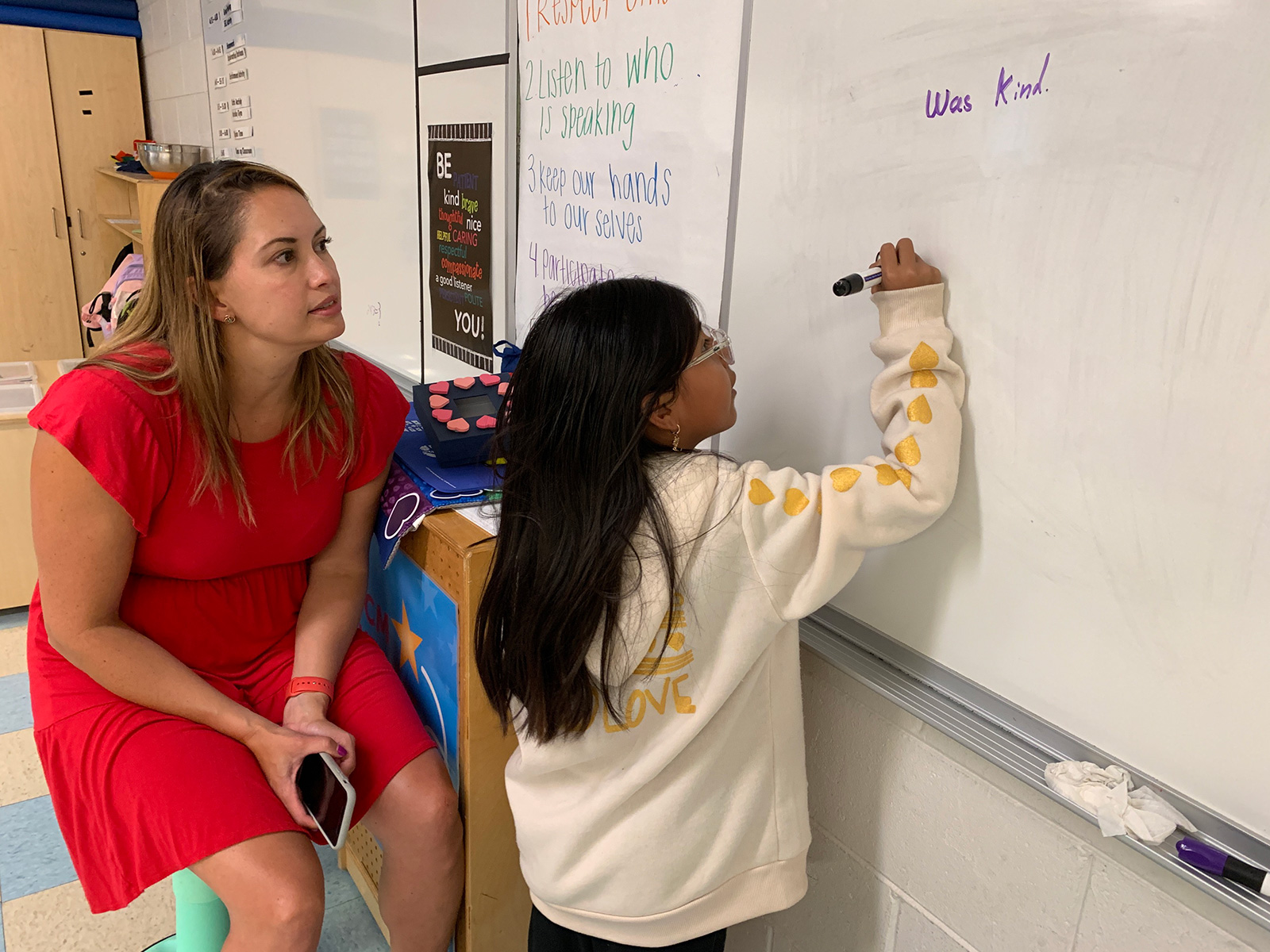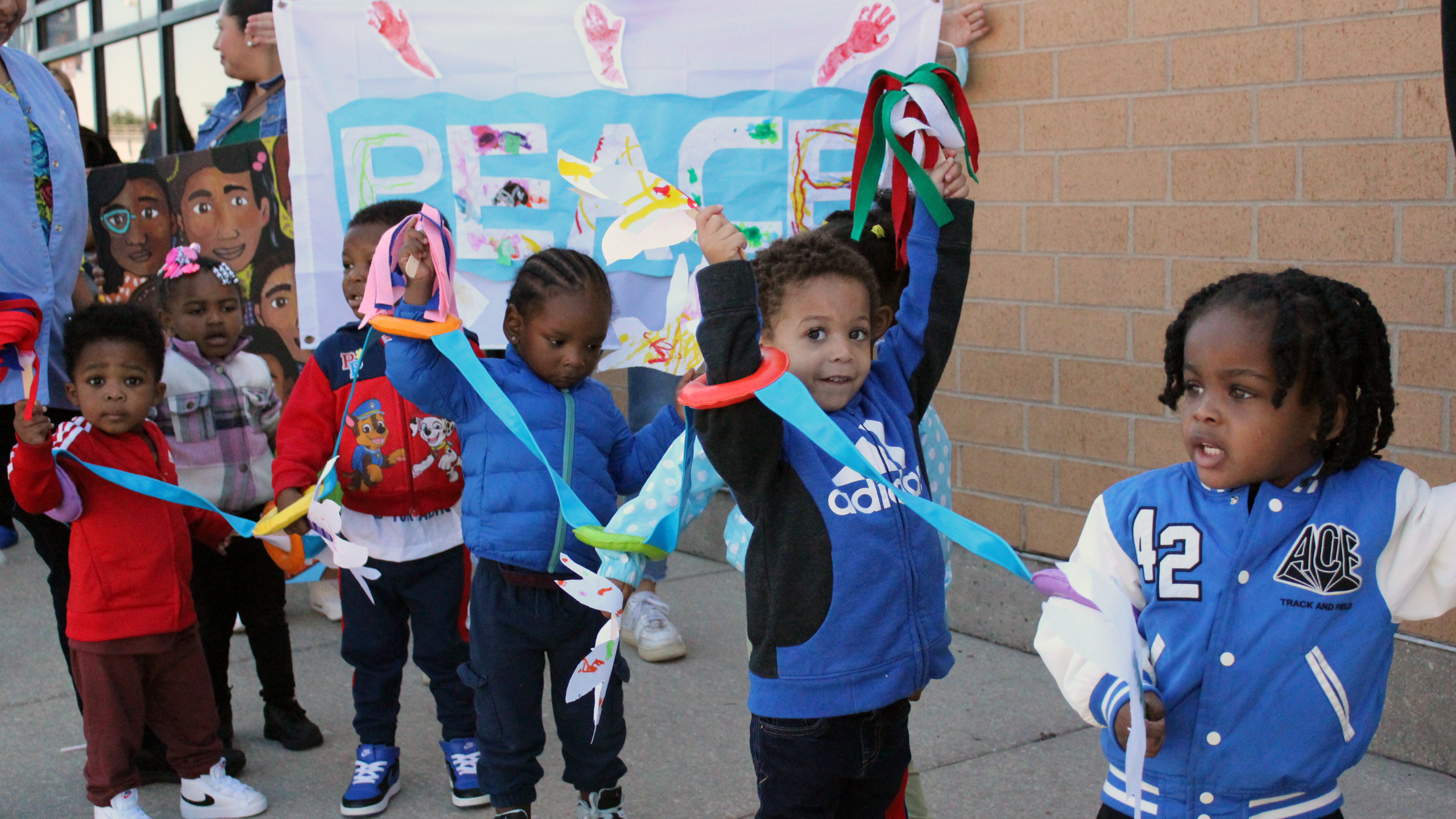At its three flagship locations in Chicago and around the city, the Carole Robertson Center for Learning supports the education for approximately 2,500 children from before birth to age 17. Early Learning Nation magazine spoke to Julissa Cruz, the organization’s senior director of Community-Based Advocacy, about the organization’s history, mission and strategy for lasting social change.
• Rooted in tragedy—and hope. In 1963, a bomb placed at Birmingham’s 16th Street Baptist Church killed 14-year-old Carole Robertson and three other girls: Addie Mae Collins, Cynthia Wesley and Denise McNair. The racist murders horrified the nation—and, over a decade later, resonated with young people on Chicago’s Near West Side who saw many similarities between themselves and those killed in the bombing.
In 1976, Maria Whelan, a Chicago activist and educator who led efforts to launch a local community-based organization for and by families, traveled to Birmingham to meet Robertson’s family and secured permission to use her name. Just as the aftershocks of the bombing and the energy of the Civil Rights movement were foundational to the Carole Robertson Center, social justice and equity guide every aspect of the community-based organization’s growth today.
Last month, the Center held its annual Legacy Week to pay tribute to the four girls who died 60 years ago and to reaffirm its commitment to advancing racial justice. Children took part in “peace marches” around its three flagship sites, carrying signs with positive messages. “So many things have changed in this country,” says Cruz, “but so many things have stayed the same, and we always want to remember that starting point.”
• Growing with Chicago. The Center arose in the Near West Side near the University of Illinois at Chicago in what today known as the Illinois Medical District (IMD), an area “surrounded by some of the most distressed communities and most abject poverty in Chicago,” according to a brief by urbanist Bruce Katz and Dr. Suzet McKinney (CEO of the IMD). It continues to operate within Chicago city limits, focusing on communities facing a welter of changes and challenges.

Cruz was born in Chicago to Puerto Rican parents. Now a mother of two boys (4 and 8 years old), she remains attached to the city and its neighborhoods, noting the differences among the locations where the Center operates. “In Little Village and Lawndale,” she says, “We serve Black and brown children, and we have people of color staffing classrooms. Children are being educated by people who look like them, who can understand their families’ experiences and who speak their language.”
Albany Park, by contrast, is known as “Gateway to the World” for its rich array of immigrant communities from Latin America, Asia, the Philippines and the Middle East. “Wherever your family is from,” Cruz says. “We’re going to celebrate you. We’re not going to ask you to be someone you’re not. Our Center staff and home visiting team mirror the communities in which they work.”
• Advancing quality and equity, together. Because parents and caregivers who take part in Carole Robertson Center programming also belong to the city’s labor force, Cruz stresses what she calls “the symbiotic relationship between early learning and a community’s economic vitality.” Not only will these workers be more successful if they feel comfortable knowing that the providers taking care of their children are qualified and nurturing, but in a few short decades, those children will be entering the workforce themselves.
Research has demonstrated again and again that an early start in brain development pays off in terms of educational and career achievement. “Those first five years determine how a child develops later on,” Cruz summarizes. “When we talk about school readiness, a lot of people think kindergarten is the starting point, but it’s actually in the womb and throughout the first years, when the brain is like a sponge.”
• Seizing this moment. The Carole Robertson Center began as a direct service organization, and while the families it serves remain at the heart of their mission, community-based advocacy in city and state policy debates has added another dimension that the times demand. As Cruz explains, “We were all very excited about Smart Start and the $300 million state investment in early learning. Now is the time to ensure there is a systems approach to ensure that our workforce is adequately paid.
If budgets are our moral code, then they should truly reflect our values as a society.” For instance, she cites education and licensing pathways, especially for nontraditional employees (a hypothetical 32-year-old mother of two who doesn’t have time to be in class all day), as a promising area of investment.
• A different kind of advocacy. When the Carole Robertson Center engages in the issues, it relies extensively on the opinions and experiences of the families it serves. “We’re not a policy think-tank,” Cruz says. “We pull folks along with us to understand what’s happening and what the potential implications are for a policy change.”
Building on her past experience as a public policy fellow with the Congressional Hispanic Caucus Institute, Cruz recently embarked on the Erikson Institute’s Barbara Bowman Leadership Fellows Program. As one of 18 fellows, she’ll gain insights on public policy and hone her skills at analyzing issues affecting young children and families—and advocating for change.
👉 Erikson Institute’s New, Fully Funded Master’s Program for Educators of Color in Chicago

Mark Swartz
Mark Swartz writes about efforts to improve early care and education as well as developments in the U.S. care economy. He lives in Maryland.



